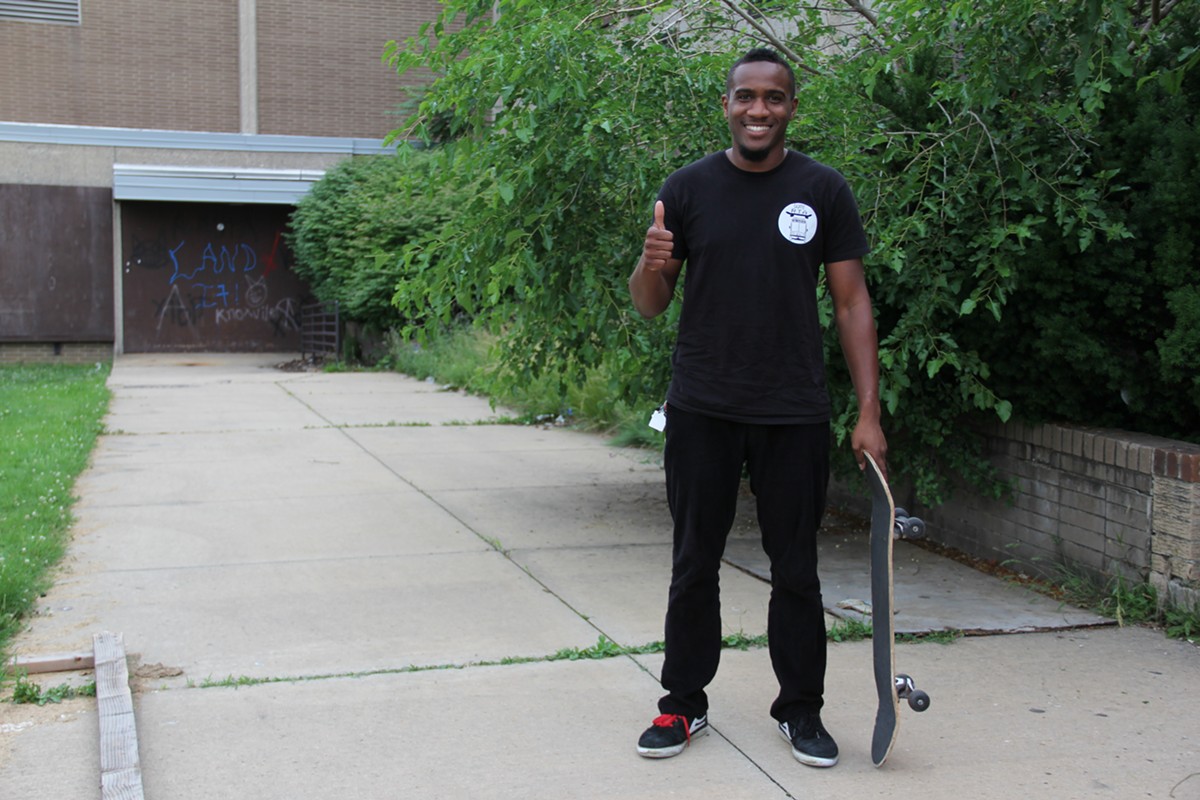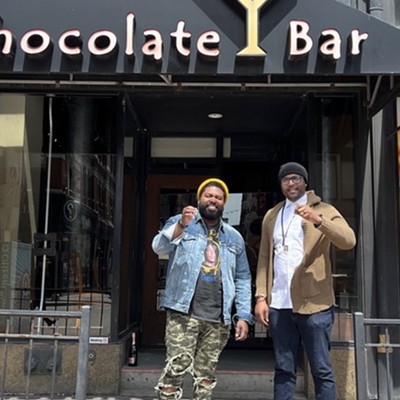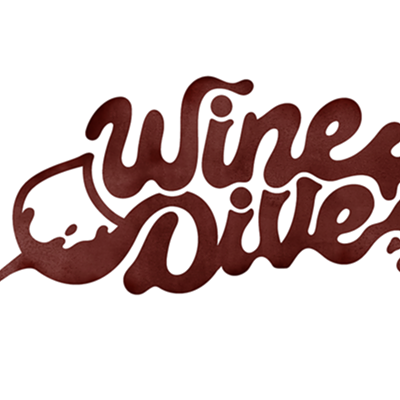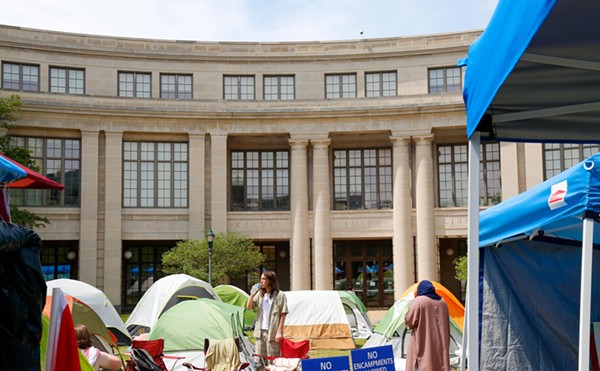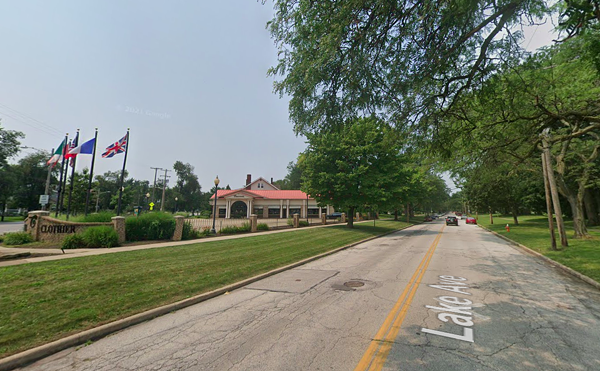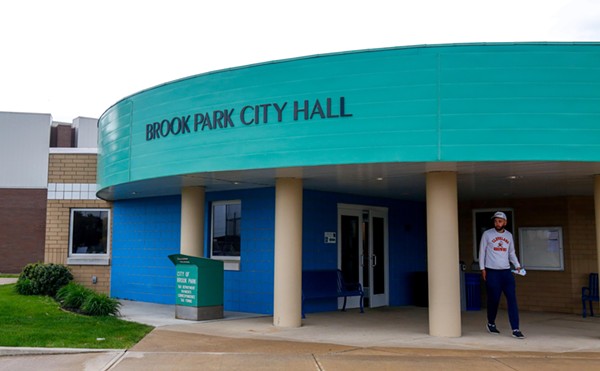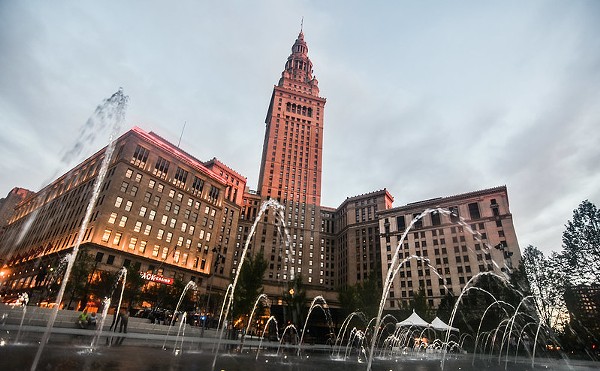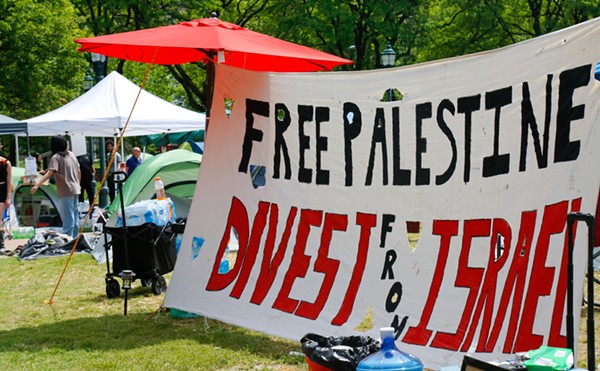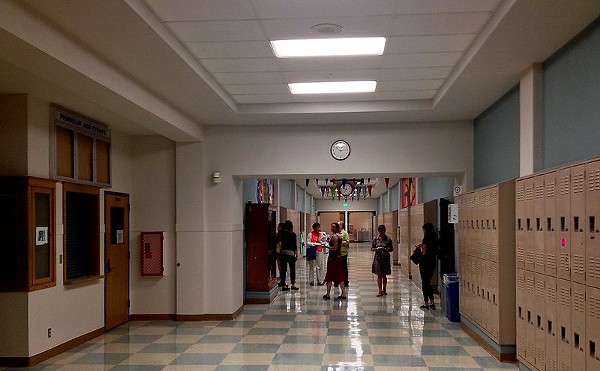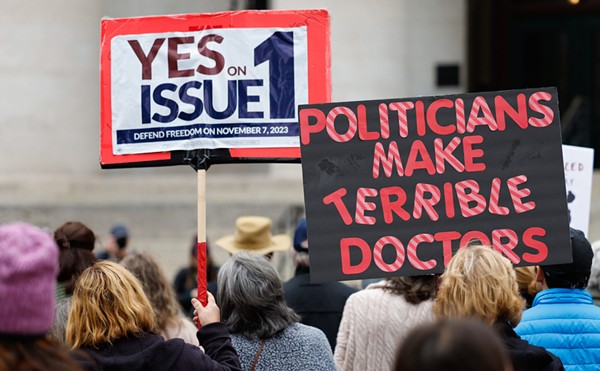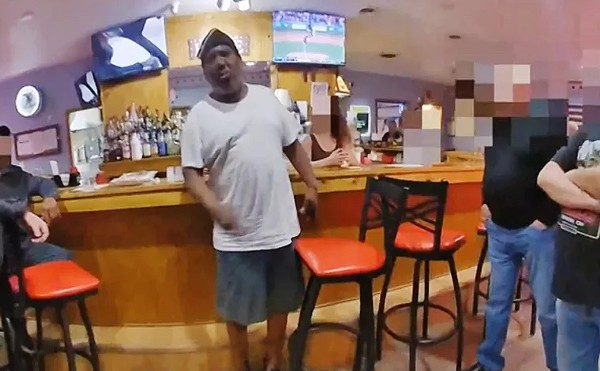Ja'Ovvoni Garrison's life was anything but stable growing up. Moving from city to city and across state lines, skateboarding became his refuge. At 18, he started Skaters Next Door, a community program that typically runs 6 to 8 weeks during the fall at Stella Walsh Recreation Center, to share his passion for skating with kids in the community. During the program, he teaches skating basics and gives away free boards to kids who need them. Since 2008, Garrison, 25, has raised more than $40,000 through grant writing and working with organizations such as Neighborhood Connection and Slavic Village Development. He is currently running an online gofundme campaign to raise $4,500 to give away 100 free skateboards to kids in the area.
[View photos of a recent skate session right here.]
When did you start skating?
I started skating when I was 13, 14. I was staying in East Cleveland at the time. I didn't get heavy into skateboarding until I was 16 and that's when we moved to Cleveland, definitely a different atmosphere. For my 16th birthday was when I pretty much got my legit skateboard, a board with concave. The first board that I didn't break every month, because I started off with Walmart boards like everyone does. I started learning and that's kind of when the passion kicked in. I would skate all day in my basement during the winters, just stationary whatever.
What is a typical class during the program like?
We do lessons maybe two to three days a week when we run the programs. If you came in we would figure out if you needed a skateboard or have one. As far as the curriculum goes, we figure out your stance. Do you push goofy or do you push regular footed? We need to figure that out moving forward, just really getting the basics down. That's my goal with every class and with the curriculum, I tell them, 'I'm not here to make you pro skaters. I'm here to give you the basics and the basic elements to progress and whatever you do is up to you, you are taking this opportunity to push yourself.'
How would you describe the skating culture in Cleveland when you first started the community programs?
Before, it was very sparse. There were skaters, I think the scene was here, but it was mainly in the suburbs, because there were parks there, there were spaces there. Growing up, even as a kid, I had noticed a lot of people black, white, whatever, skateboarding had this idea that part one it was a suburban sport but also only for white people and I had never experienced that. When I would go skating at the waterfront, there were Asian guys, black guys, my one friend was from the Ukraine. It was just different walks of life and I didn't have those filters as far as race or identity. We are all related in some way because we all shared this experience with skateboarding.
How did you get the word out about the programs when you were first starting out with such a segmented culture?
I remember in the very beginning, some of the first lessons I did I wasn't even sure. I was thinking I could start this program and nobody would come, because a lot of people do have those stereotypes. Where people might say, 'Why would I do this? This isn't my style, this isn't what I am supposed to do.' So I thought I could start it and if one kid comes that's better than nothing. I lived in the neighborhood at the time and I would go around and look for kids who might just be starting to skateboard. 'Cause a lot of kids, when they are young, they probably tried it, but there's no connection for getting them to keep up with it. So I would run into kids in the neighborhood, and be like 'Yo, if you come to Stella I have a board for you.' At that time, I would have 20 to 25 boards on hand and we would have about 10 or 15 kids per lesson. So I would give them out to kind of reel them in, get them involved with the culture, get them involved with the guys that are already skating to connect those pieces together so they can grow with them.
Have you received pushback for your efforts?
Being young dealing with older folks, there was this one time where I applied for a grant and I went through the interview and we didn't get the grant, and later I ended up seeing one of the ladies that interviewed me. And she said, 'Well, to be honest, I really didn't feel like giving you the green light for it, because you were cocky.' My mind was blown. How could she feel I was cocky because I believed in something so strong for my neighborhood and about skateboarding? But I guess that was our fifth or sixth year applying for a grant, I knew what I wanted. We got the grant a season later, but honestly if I was new I honestly would have said f*ck this. Because you honestly don't know what I am trying to do, I am not here to be cocky, I am here to make something happen for the kids that want it. So it was definitely interesting, to get that pushback. Being young and people not really understanding what I was doing and who I was.
There's often a stigma around skateboarding, that skateboarders are troublemakers. How do you respond to that criticism?
That's definitely out there, but that's just with cultures in general. You know you have people that shoot guns that go to a range and love it. And then you have people that do it in a totally different light, on the negative side. So there's definitely two ends, but you know these guys have a different mindset about skateboarding, and they know that skateboarding has an image, and that's something that they want, in a sense, to protect. For them being young, they aren't doing what people who call hooligan or whatever. Because they know what I went through and why I'm giving them this opportunity to make it what it is.
What does this community mean to you and to the kids in it?
For me, I love it, man; it was what I wanted. I grew up and there were nine of us, so I was around a lot of people in general, but I didn't have a lot of friends. And so to kind of build these bridges with guys from different areas, from different walks of life. They understand what it's like to help each other grow, and not just help yourself, but to help the community at large grow with each other. They are there for each other if they need it. I know what I didn't have and just seeing these guys here working on it, loving it the same way I do.

